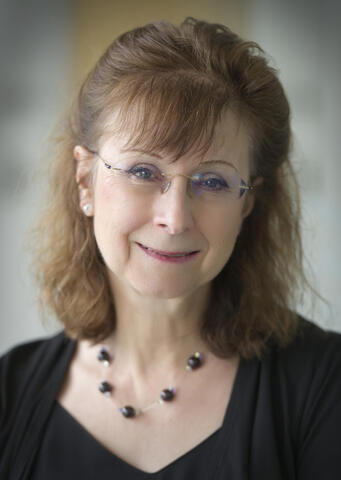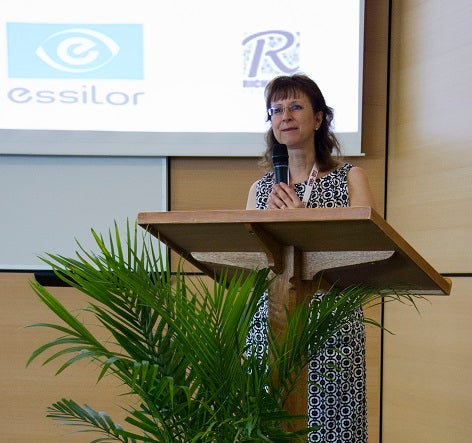 In December 2020, Dr. Susan Leat marked the end of an era – she retired from the University of Waterloo’s School of Optometry and Vision Science. Reflecting on a successful career spanning over four decades, Leat says it all began with a conversation with her high school career guidance counsellor.
In December 2020, Dr. Susan Leat marked the end of an era – she retired from the University of Waterloo’s School of Optometry and Vision Science. Reflecting on a successful career spanning over four decades, Leat says it all began with a conversation with her high school career guidance counsellor.
“The subjects I always liked most were physics and biology – so while thinking about career options, my counsellor suggested that I look into optometry,” says Leat. “Now forty years later, I can certainly say that it was a good choice!”
Leader in low vision rehabilitation
After graduating with first-class Honours in Optometry from the University of Manchester, Leat spent a few years working in a private practice and in a hospital setting before following her heart back to the world of academia. In 1986, Leat was awarded her PhD from Cardiff University.
During her time at Cardiff, Leat focused her research on the field of low vision. Leveraging her expertise, Leat established Cardiff University’s Low Vision Clinic in 1989, the first university-based low vision clinic of its kind in Britain.
Champion for experiential education
Following her time at Cardiff University, Dr. Leat joined the University of Waterloo in 1991 to take up a Clinical Faculty position. Since then, Dr. Leat has left her mark on the School by occupying a number of key leadership roles - including the Past Head of the Paediatric and Special Needs Clinic, Primary Care Externship Programme Officer, Co-Head of Residency and the Senior Admissions Officer.
“Dr. Leat has had a tremendous impact on the School during her time here,” says Dr. Stan Woo, Director, School of Optometry and Vision Science. “All these key roles clearly reflect Dr. Leat’s unique ability as a clinician scientist to bridge that traditional divide between research, patient care and clinical education,” says Dr. Woo.
During her early years at the university, Leat was instrumental in creating opportunities for experiential learning. Leat was involved in developing the early “primary care externship” program. This program has evolved into the modern-day clerkship program, allowing students to gain the critical experience in practice learning they need to thrive post-graduation. Leat also helped develop the School’s residency program, an invaluable opportunity for graduates to further refine their skills in specialty areas of optometry.
Innovation in clinical research
Over the years, Leat focused on clinical research questions within the areas of low vision, pediatrics, special needs populations and gerontology. As a clinical scientist, she collaborated with professionals from a wide variety of disciplines including medicine, rehabilitation specialists, optometrists in private practice, commercial companies, and professional organisations. Leat has published a total of seventy-nine peer reviewed articles to date, and several books and book chapters on low vision and pediatrics.
“What I’ve really loved about my career has been the variety – whether it’s delivering clinical instruction, teaching a lecture, leading research studies or working with my colleagues in administration, every day is a new challenge,” says Leat.
Valued teacher, colleague, and friend
The legacy Dr. Leat is leaving behind is not lost among her colleagues.
“As a fellow faculty member, I have seen first-hand the ways in which Dr. Leat has played a big role in shaping the School of Optometry and Vision Science into what we see today,” says Dr. Lisa Christian, Associate Clinical Professor and Associate Director of Clinical Education.
“She has interacted with almost everyone in the building – from graduate students, to clinical residents, to our optometry students,” says Christian. “I’m sure everyone has a fond memory to share about all they have learned from Dr Leat!”
Celebrating Dr. Leat’s legacy
Despite officially entering retirement, Leat has no plans to slow down. In addition to actively working on several research projects at the university, she is also looking forward to having more time to garden, participate in art and photography, and take local cooking courses.
The School would like to congratulate Dr. Susan Leat on her well-deserved retirement, and thank her for her years of dedication, leadership, and commitment.




